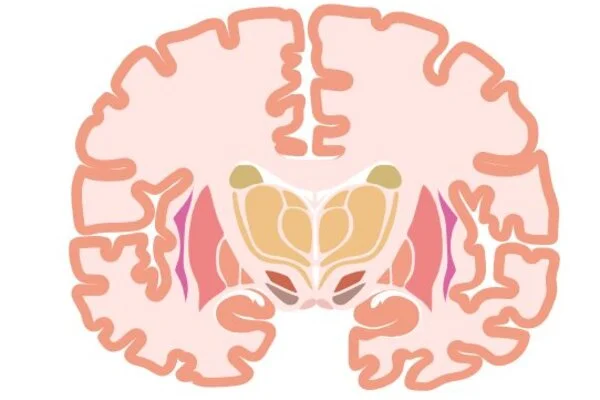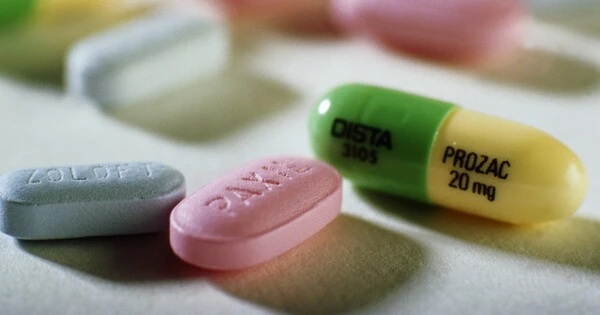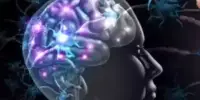Depression affects millions of people throughout the world. However, effective medications with few side effects are hard to come by. Researchers have now revealed that KNT-127, a delta opioid receptor agonist, rapidly and efficiently decreases classic depression characteristics in a mouse model. This antidepressant drug has the dual properties of a stress reliever and an antidepressant, and it has the potential to expand the potential of existing treatments.
Millions of people worldwide suffer from depression as a result of psychological stress. However, most antidepressant medications are sluggish, prone to resistance, and have severe side effects, necessitating the development of more effective therapy options.
Delta opioid receptors (DOPs) have been linked to the development of depression and other mental illnesses. Previous research has shown that DOP agonists (substances that bind DOPs instead of the ordinary molecule and provide the same effect) have higher efficacy and fewer negative effects than most antidepressant medicines on the market. KNT-127 has recently been found as a strong DOP agonist with considerable antidepressant effectiveness, rapid action, and few adverse effects. The underlying mechanism of action, however, is not well understood.
In this study, we aimed to explain the mechanism of antidepressant-like effects of KNT-127, a selective DOP agonist, in a mouse model of depression.
Prof. Akiyoshi Saitoh
To this end, Prof. Akiyoshi Saitoh, Mr. Toshinori Yoshioka, Jr. Associate Prof. Daisuke Yamada, and Prof. Eri Segi-Nishida, at the Tokyo University of Science, along with Prof.Hiroshi Nagase from the University of Tsukuba, set out to assess the therapeutic and preventive effects of KNT-127 in a mouse model with depression. The findings of this study were made available online on 30 March, 2023, and published in the journal Neuropharmacology on 4 April, 2023.
Prof. Saitoh describes the motive for their work, “We previously discovered that delta-opioid receptor (DOP) agonists may have quick action and a low risk of side effects compared to existing drugs. As a result, we have been focusing on their clinical development as a new therapeutic method for depression. In this study, we aimed to explain the mechanism of antidepressant-like effects of KNT-127, a selective DOP agonist, in a mouse model of depression.”
The hypothalamic-pituitary-adrenal axis, hippocampal neurogenesis, and neuroinflammation are thought to be key factors in the development of depression. Understanding the influence of KNT-127 on the above parameters was thus critical in decoding its fundamental operating principle.

Prof. Saitoh and colleagues developed the chronic vicarious social defeat stress (cVSDS) mice depression mouse model by subjecting five-week-old male mice to intense psychological stress for 10 minutes per day for ten days. The mice were then given KNT-127 both during (10 days) and after (28 days) the stress phase to evaluate its efficacy.
They discovered that prolonged administration of KNT-127 during (anti-stress effect) and after stress (anti-depressant effect) increased social interaction and blood corticosterone levels (a hormone released during stress in mice) in cVSDS mice. Furthermore, under stress, KNT-127 treatment decreased stress-induced newborn neuronal mortality in the hippocampus rather than boosting neurogenesis, or the production of new neurons. KNT-127, on the other hand, had no effect on neonatal neuron survival rate when provided following stress. Furthermore, unlike traditional antidepressants, KNT-127 had no effect on neurogenesis even in the absence of stress.
In the brains of cVSDS mice, psychological stress increases the amount of microglia and activated microglia. Interestingly, KNT-127 decreased microglial activation and thereby lowered inflammation in the hippocampus in both delivery models.
In a nutshell, KNT-127 inhibits neuronal inflammation and lowers neonatal neuronal mortality without influencing neuron development to produce anti-stress and anti-depressant-like actions during and after stress. However, further study is needed to have a better understanding of DOP agonists and the mechanisms behind their antidepressant benefits.
KNT-127’s anti-stress impact may provide additional benefits to patients throughout therapy. Prof. Saitoh elaborates, “Patients with depression frequently find themselves in situations where they are unable to avoid stressful environments, even during treatment.” As a result, we feel that the added anti-stress impact during treatment has significant therapeutic importance.”
Prof. Saitoh says, “We expect that the successful clinical development of DOP agonists will greatly broaden the options for the treatment of depression in the future.”
















